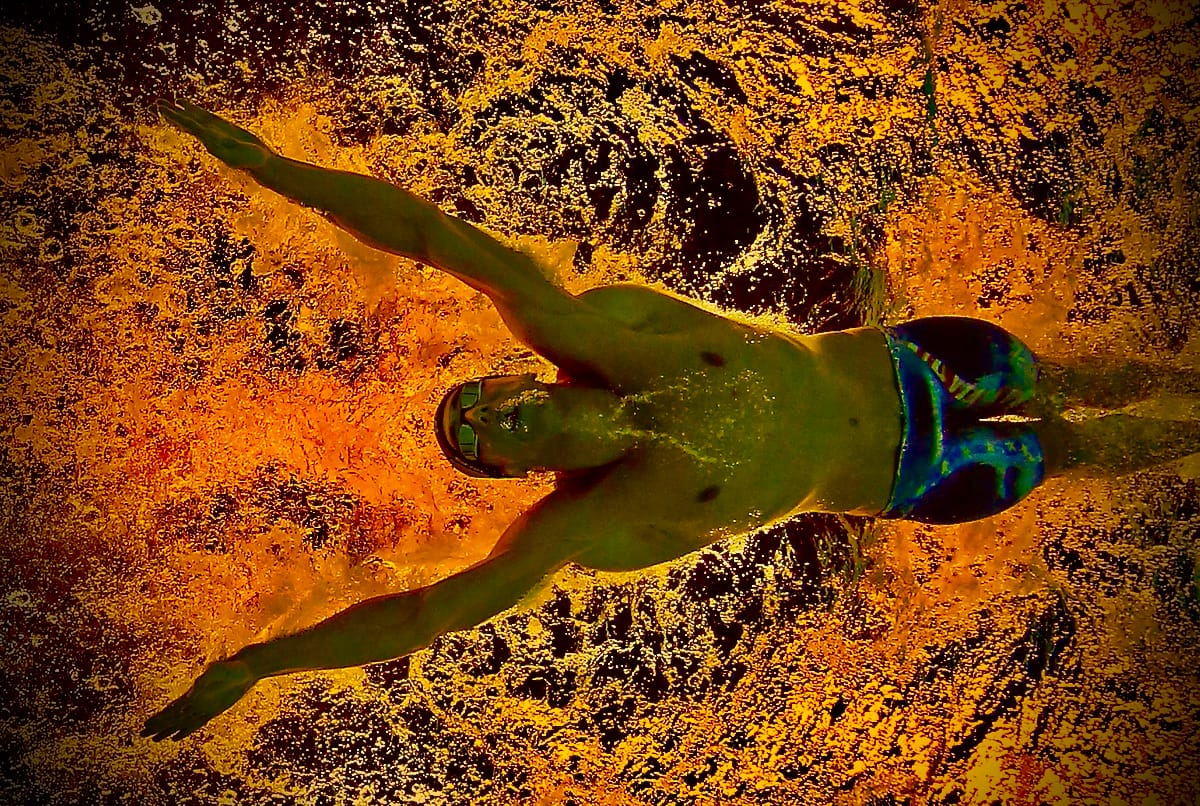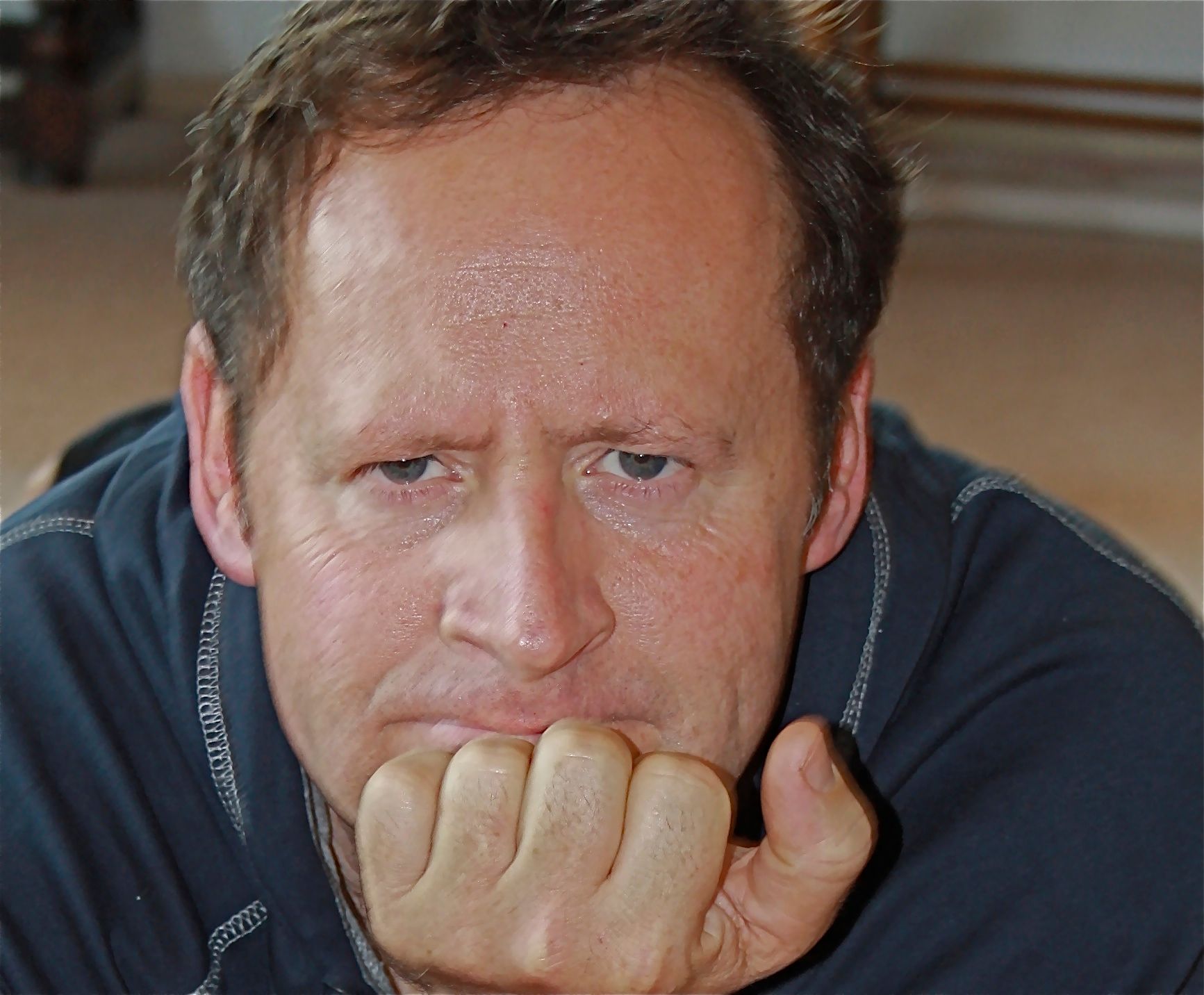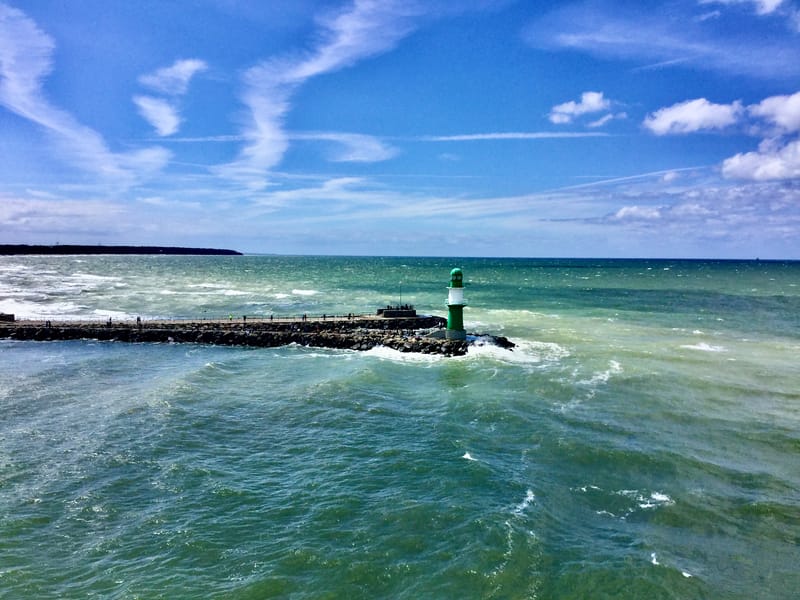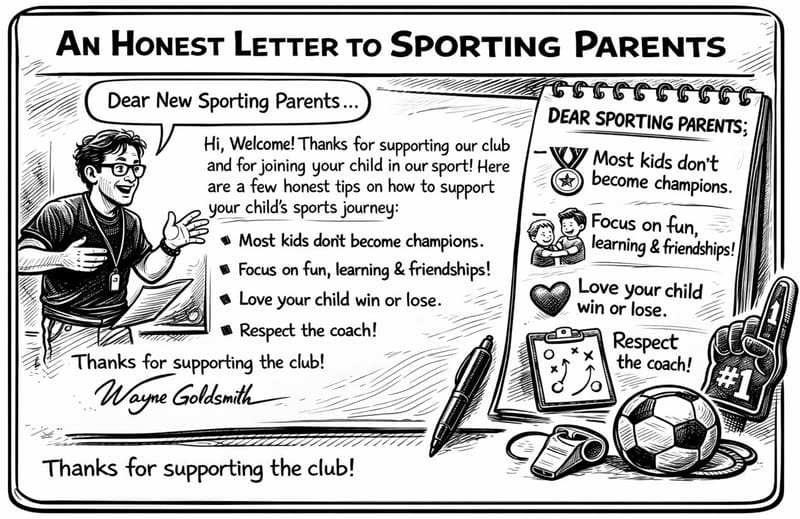Navigating The Cultural Loop Linked To The USA's Performance in The Pool
Have governors been playing their only role in the USA's "World No 1 status": to deliver the very best environment in which swim stars are formed? The Ghost of USA Swimming Past guides us to places where so much time, energy and goodwill was lost
THEMA: USA Swimming's Struggles - Part 3
The ghost of USA Swimming past is patient. It's been a couple of weeks since part 2 of this mini-series looking at the challenges facing the No1 swim nation and a year since the domestic regulator had a CEO.
Now, after an embarrassing hiccup, it has one: Kevin Ring, a man who knows a lot more about hockey and golf than swimming but has pledged to "listen" as he takes up a highly paid job citing a focus of creating "a modernised revenue plan". A few instant thoughts:
- USA Swimming is a business that needs a revenue plan, for sure, but it's also first and foremost a membership organisation - and its shop window is one of the, if not the, biggest winning bull runs of consistent premier status in a single sport in history, the knowledge of pioneering preparation, the art of 'how to keep our edge', a system that invites the world in and learns as it teaches among key ingredients in a kitchen that passes its unhidden 'secrets' from generation to generation of mentors, helping to set a high bar that each passing wave benefits from as the shoulder they aspire to stand on.
- Even at the deep end of competitiveness in the pool, no amount of money can keep the competitiveness of the wider world at bay (and any attempt to do so by sports politicians who think they've understood competitive sport - that realm when pulling the tiger's tail risks being your last act of self-harm - is likely to be met with greater determination down the line).
- The latest Olympic cycle served as a reminder that revenue streams (including trials in vast stadiums with a stream of marketeers and merchandisers in tow) don't necessarily stem the bleed in the feed of talent to the elite pool that USA Swimming witnessed in 2023: fully paid membership numbers at USA Swimming dropped by 18,000.
It's also worth reminding ourselves of the international backdrop that speaks to the state and status of swimming and its financial clout in wider context (which plays out differently in different parts of the world because of how sport is funded locally but remains relevant to all, one way or another, particularly when it comes to how money flows to the sport and how and to whom it flows out)
A reminder that swimming is not "Pro":
- Swimming - World Aquatics generated US$107.83 million in revenue in 2024, for a net surplus of $51.17 million. Swimmers received $7.1m in prize money that year, multiple events
- Tennis - the grand slams generated over $1.5 billion and Wimbledon alone generated $555m, for a net surplus of $73.69m. Players received $67.85m in prize money in 2024, at that one tournament, while the grand slam total now tops $290m, almost three times the amount of swimming's annual revenue.
- Below, we mention the sad decision in the story of Ben Proud, including one of the ways in which we know 'pro' swimming does not have the same 'pro' meaning as that found in true 'pro' sports.
Such wider comparisons spill into discussions about how swimming is funded, how athletes fund their excellence or have it funded for them (swimming is a sports of massive subsidisation in a variety of forms, parental to local sponsor, state support, direct taxpayer contributions (lottery), on to prize money and endorsement, with many a nuance in between).
Allow me to digress on a directly related matter, for a few paragraphs:
This past week has been soaked in the sorrow of Ben Proud's decision to close the book of his swimming life. What follows is a private vanity project that is both meaningless beyond the mirror of its own making. A legend in his living room Proud was never destined to be; as an Olympic silver medallist and three-times World champion, he earned a lifetime of respect, fame, and even possible fortune, for doors open on the strength of gold - no question.
The game changes when the gold is tainted in any way. Lending your name, status and support to the doping games is one of those taints, and no amount of saying 'but EG doesn't insist on anyone taking drugs' will convince anyone that drugs have not been taken when the clock stops inside a 20.89 enhanced beyond the rules of the traditional sport in several ways, doping, suit, sad and lonely time-trial conditions among them.
Everyone gets the financial argument and the lament about the guardians of sport falling down on the job as they did with the China-23-go-free and on many other occasions, for a variety of reasons down the decades.
Both arguments are weakened in Proud's case by the reality:
- the sums - "I'd need 13 years of World Championships to win the $1m I can get with one season and one 50m swim as an enhanced athlete" - simply doesn't tell the story of what is actually available to swimmers.
- the career - Proud noting what we all know about the weaknesses of WADA [including laxness, a falling shy of robust, forensic investigation wherever that is needed, political proximity and as failure to acknowledge and take account of a somewhat counter-intuitive reality that different environmental and circumstantial situations demand different approaches to the art and task of scrutiny of the kind required in pathology when dealing with criminal minds as the only way to say you got as close to making sure athletes are treated to the same standards and degree of clean-sport accountability wherever they come from and whichever system they work in]
A quick note on the first point, which we'll return in more detail in the coming week because the money in swimming is not exactly low-level for a swimmer of Proud's status (no, not the stuff of football, tennis etc, nowhere near, but the possible prizes are definitely far more that the income of an average hard-working family in many leading economies of the world, even taking two working parents into account).
To beat folk who take drugs and wear a banned suit in pursuit of the enhanced $1m, Proud is likely to have to race opponents who are drugged and buoyed by a suit banned in the traditional realm. It's the only way to earn that kind of money, is the suggestion far and wide in coverage - even click-bait coverage in niche places where folk ought to know better - on the 'poverty' of the swimmer.
To all of that, I say this: ask the many swimmers who have claimed career prize money worth far more than US$1m by racing at almost every opportunity available to them if they feel $1m is worth tainting their legacies for, including athletes who have been strong advocates for clean sport and cannot comprehend why, for any fee, you would want to embrace a culture in which manipulation is part of the framework.
If we reduced Proud's "13 years" to between just 1 season and 3 seasons, we find the likes of Katinka Hosszu, Sarah Sjostrom and Kaylee McKeown among those whose earnings in prizes and bonuses topped the $1m Proud thinks it worth embracing as youth coaches all over Britain opt no longer to mention his name or hold him up as an example and aspiration. His choice is an engagement stopper, a moment of self-cancellation, as it were.
Yes, Proud has two 50m events - free and 'fly - not the multi options of those above - to aim for, but that's a part of the nature of swimming: he either never had the make-up or skills to extend his efforts to 100m (not even in relays for Britain) or didn't want to work on that in case it compromised his 50m speed and potential till. Choices, choices.
That earlier note on why his sport is not 'pro' in the sense of 'big pro sport' is a part of the story of swimming's evolution: Proud laments that Aquatics GB (prev. British Swimming) did not find his passage on World Cup Tour, so his ability to earn decent prize money was curtailed, the costs of even taking on the tour prohibitive for the individual without a guaranteed income to cover it.
World Aquatics leaders point out that they have been asked by domestic federations to pay the way of all, not just development, swimmers to get them to events such as the Cup. The reason is clear: the bulk of Aquatics GB funding comes from UK Sport, which gets its money from a pocket in the wider meaning of 'public purse': in the form of ring-fenced proceeds from the National Lottery.
Why, the funder and its funders may ask, when the money is tight, would we contribute many thousands of pounds per swimmer to cover their costs for a our of a Cup in Asia or the Americas, say, when that would take a big bite out of an overall budge so that the individual swimmer can earn tens off thousands of dollars as personal income for the benefit of he one. Surely, those with access to the big prize money should pay their own way to go get that income, like golfers fund their 5-star hotels or $1m-plus motorhomes.
Well, yes, if the prize money covers such bills. The truth is, the swimming economy is still stuck in the twilight zone between amateur and full professional in terms of the pay available to athletes.
Those questions, dilemmas and growing pains, complete with arguments about how federations spend their money, lead us, in my opinion, to thinking acceptance of manipulation in the arms of the very wealthy who do not subscribe to clean sport is the answer.
That is especially the case in the absence of truth and nothing but the truth. For example, Proud should go back to his new overlords in an Enhanced world that includes billionaire Peter Thiel and Donald Trump Jr among investors, and ask them to roll back on this kickback to Bylaw 10 and a separation of trades that simply do not belong in the same room together:
"This ban [on anyone who joins any enhanced world that is clearly a very different trade to that of ani-doping controlled sport] isn’t about protecting athletes. It’s about protecting a monopoly. World Aquatics hasn’t paid its athletes for decades. Now, faced with real competition and real momentum, they’ve fallen back on threats and bullying tactics."
Whether Proud intends so or thinks so or not, his support for the people who made that statement is incompatible with his stated view that he accepts their is no way back to the Olympic/World Aquatics realm for those who accept work conditions that are forbidden in the clean-sport trade a handful of enhanced sprinters and a coach known for his love of shiny suits and the performance boost they delivered to his college program in 2009 have left behind.
There are no wages in swimming since the International Swimming League folded but it just isn’t true to say WA hasn’t paid swimmers in decades - and Ben has chosen to join a realm he must know is not only happy to manipulate results but the truth with it. That, in my opinion, taints his legacy because it means he cannot capitalise on that legacy in ways he might have done nor will he be invited to give back in ways that money can't buy.
As above: Swimmers received $7.1m in prize money in 2024. I happen to think that 'development' programs and other projects federations invest in with the revenue they receive on the strength of the showcase events delivered by athletes, coaches, the bank of mum and dad and so on, should be more transparent and come under independent scrutiny, but even so, it is entirely fair to point out that World Aquatics invests far more money, and that on a consistent basis, in the sport of swimming than any enhanced vanity project ever could, including the one in which a handful of folk backed by rich men tossing dollars into a cock fight want us to believe that doping is fair game even when that is a mission impossible not even Tom Cruise and an an army of other Hollywood stunt men could overcome - on several levels.
Of course, we all know that swimming is also a sport that includes South African mums and dads who foot the bill for their offspring to accept the privilege of representing their country the Olympics, travel, food, accommodation included. The bank of mum and dad is the largest unhidden economy in Olympic sport, the investment far greater than any broadcast rights, including global, you care to mention.
Those tennis figures above confirm what we know: there is always work to be done to maintain swimming's modest place on the global ranking of sports, and, yes, some of that effort takes place at the important interface of governance and performance sport. Knowledgeable leadership counts and where the knowledge is less than 'native', the leader must know who to listen to and why that's the case.
Which is how we arrived here in the Hall of Spirits past, present and future for this series, with words of the wisdom from Bobby Finke in tow: he thought the correlation between whether USA Swimming had a CEO or not and the results of the USA team at a challenging World Championships a poor and even unfair explanation for performance outcomes.
That correlation is not irrelevant, of course, not least of all because a financially sound organisation can be a useful tool, and because leadership can make or break the working environment of athletes, coaches, parents, families - primarily - sponsors, media and many more beyond that.
Nonetheless, I thought Finke made his points well because they led us to the factory (pool, home, lifestyle, access to expertise etc) doors beyond which the real work takes place regardless of whether the CEO has managed to build "a modernised revenue plan" or not.
Quick recap: 'Rudderless' was the word used by Rowdy Gaines during the recent World Championships in Singapore when the Olympic champion and World record holder of the 1980s and long-since a commentator, called on the U.S. federation to step up.
Here are parts 1 and 2:
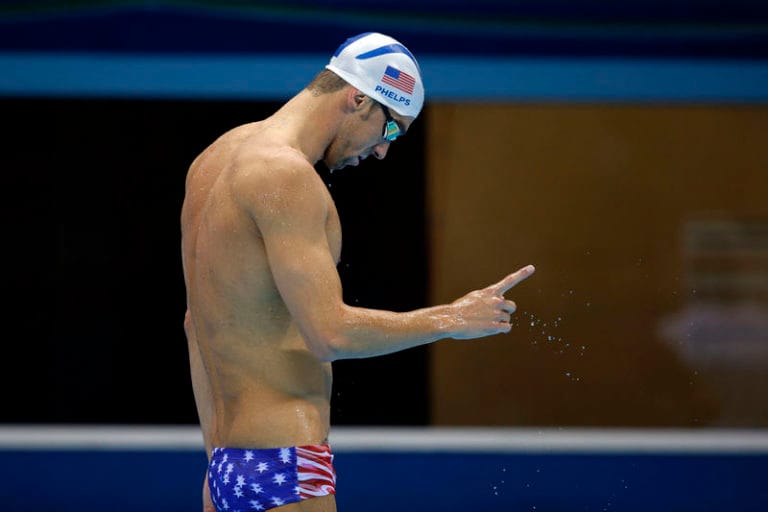
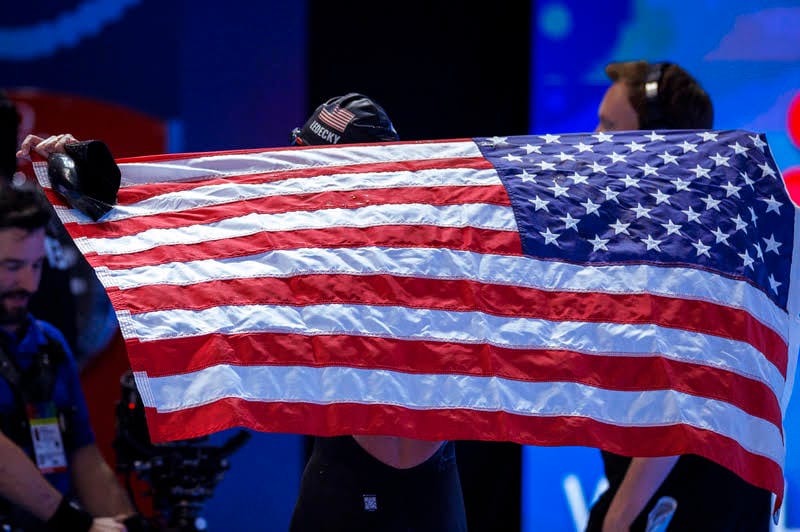
In that Part 2, we held hands with the Ghost of USA Swimming Past for a flyby of the entire history of World Championships back to 1973. We worked out, percentage wise, where Singapore 2025 fit: somewhere down towards the lower end of all World long-course Championship campaigns.
If open water were to be added into the swimming medals (and there are sound arguments why that would be reasonable, as well as reasons to resist), Australia would have topped the medals table:
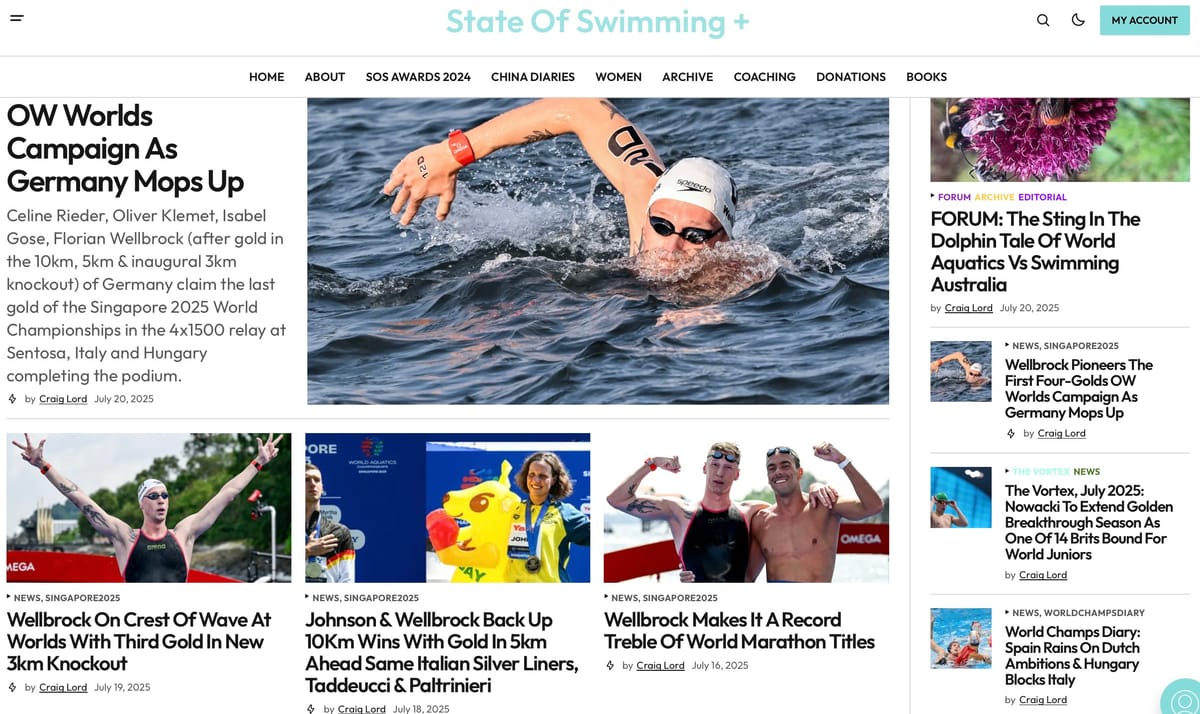
Our Ghost of USA Swimming past sweeps us off on a short flight to a Colorado Springs and a federation that lists its presidents and CEOs:
Presidents
Bill Lippman – Last Head of swimming committee in the AAU
Ross Wales (1980–1984) – First standalone President of USA Swimming
Sandra Baldwin (1984–1986)
Carol Zaleski (1986–1990, 1994–1998)
Bill Maxson (1990–1994)
Dale Neuburger (1998–2002)
Ron Van Pool (2002–2006)
Jim Wood (2006–2010)
Bruce Stratton (2010–2014)
Jim Sheehan (2014–2018)
Tim Hinchey (2017–2025)
Bob Vincent (2018) interim
Kevin Ring (2025 - )
Chief executives
Ray Essick (1980–1997)
Chuck Wielgus (1997–2017)
Tim Hinchey (2017–2025)
Kevin Ring (2025 - )
The spirit invites us to take a closer look in the context of the debate that's been raging in the USA swim community because the overall strength of the national swimming team is living through challenges going times on the way to a home Olympic Games that holds out the prospect of the new IOC president Kirsty Coventry having to sit in the VIP stands at the Opening Ceremony next to a U.S. President who has given a massive thumbs up to the doping friendly games his self-named son has invested in.
So, goggles on, and off we go...
